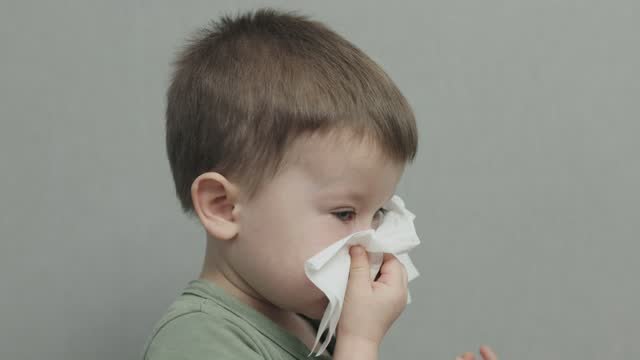
- calendar_month July 3, 2024
- folder Community Engagement
Sharing Tags
Allergy Management, Allergy Relief, California Living, Health Tips, Immune System, JohnHart, JohnHart Real Estate, Nathan Derry, Nathan Derry JohnHart, Nathan Derry Realty, Nathan Derry Recommends, Nathan Derry, JohnHart Real Estate, Pollen Allergies, Seasonal Allergies, Spring Allergies

Hello everyone, Nathan Derry here with JohnHart Real Estate. Today, I want to discuss a topic that affects many of us: seasonal allergies. Having moved to California about a decade ago, I was relieved to escape the extreme allergies I suffered back home, in Texas. However, over the years, I’ve found myself once again grappling with seasonal allergies. Let's explore why this happens, how the effects can vary from person to person, and what you can do to manage your symptoms effectively.
Why Do People Suffer from Seasonal Allergies?

Seasonal allergies, also known as hay fever or allergic rhinitis, occur when the immune system overreacts to allergens like pollen, mold spores, and dust mites present in the environment. Here are the primary reasons people suffer from seasonal allergies:
- Pollen: Different plants release pollen at various times of the year, causing spring, summer, or fall allergies. When pollen counts are high, symptoms can be more severe.
- Mold Spores: Mold thrives in damp conditions, and its spores can become airborne, leading to allergic reactions.
- Dust Mites: These tiny creatures are present year-round but can worsen symptoms during specific seasons when homes are closed up and ventilation is poor.
- Genetics: A family history of allergies can increase your likelihood of developing them.
- Environmental Factors: Exposure to certain environmental elements, pollution, and lifestyle factors can contribute to the development and severity of allergies.
How Seasonal Allergies Affect People Differently

The severity and nature of allergy symptoms can vary widely among individuals. Common symptoms include:
- Sneezing
- Runny or stuffy nose
- Itchy or watery eyes
- Coughing
- Fatigue
Factors influencing the severity include genetic predisposition, the type of allergen, geographic location, and overall health.
Personal Experience: Why Do Allergies Change Over Time?
When I first moved to California, I noticed a significant reduction in my allergy symptoms. However, about ten years later, I started experiencing seasonal allergies again. Here’s why this might happen:
- Sensitization Over Time: It’s possible to develop allergies to new allergens in your environment over time. While you may initially be free from symptoms, prolonged exposure can lead to sensitization.
- Environmental Changes: Shifts in local flora and fauna, urban development, and climate change can introduce new allergens.
- Immune System Changes: As we age, our immune systems can change, potentially increasing susceptibility to allergens.
Tips for Managing Seasonal Allergies

What to Avoid:
- High-Pollen Times: Limit outdoor activities during peak pollen times, usually in the early morning and on windy days.
- Open Windows: Keep windows and doors closed during high pollen seasons to prevent allergens from entering your home.
- Certain Foods: Some foods can cause cross-reactivity in people with pollen allergies, such as certain fruits, vegetables, and nuts.
Helpful Strategies:
- Medications: Use over-the-counter antihistamines, decongestants, or nasal corticosteroids to alleviate symptoms. Always consult with a healthcare professional before starting any medication.
- Air Purifiers: Invest in a high-efficiency particulate air (HEPA) filter to reduce indoor allergens.
- Regular Cleaning: Dust and vacuum frequently to remove allergens from your home. Use a vacuum with a HEPA filter for best results.
- Nasal Irrigation: Use saline sprays or a neti pot to rinse nasal passages and reduce congestion.
- Hydration and Nutrition: Stay hydrated and eat a balanced diet rich in anti-inflammatory foods like leafy greens, fatty fish, and nuts.
Seasonal allergies can be a nuisance, but understanding their causes and effects can help you manage them effectively. Avoiding certain triggers and adopting helpful strategies can make a significant difference in your comfort and health. If you’re experiencing severe symptoms, consider consulting an allergist for personalized advice.
I’m Nathan Derry with JohnHart Real Estate, always here to support you in every aspect of your life, not just your real estate needs. Feel free to reach out for more tips or if you need assistance with your home search.
Stay healthy and allergy-free!
All the best,
Nathan Derry

📍JohnHart Real Estate
📞(424) 303-0440
📧 nathan@jhagents.com
👨🏽💻 itsnathanderry.com
Interested in seeing a property or one of my off market properties in person? Contact me today! Who you hire matters!!!
Ready to make the best move of your life… let’s chat today!
